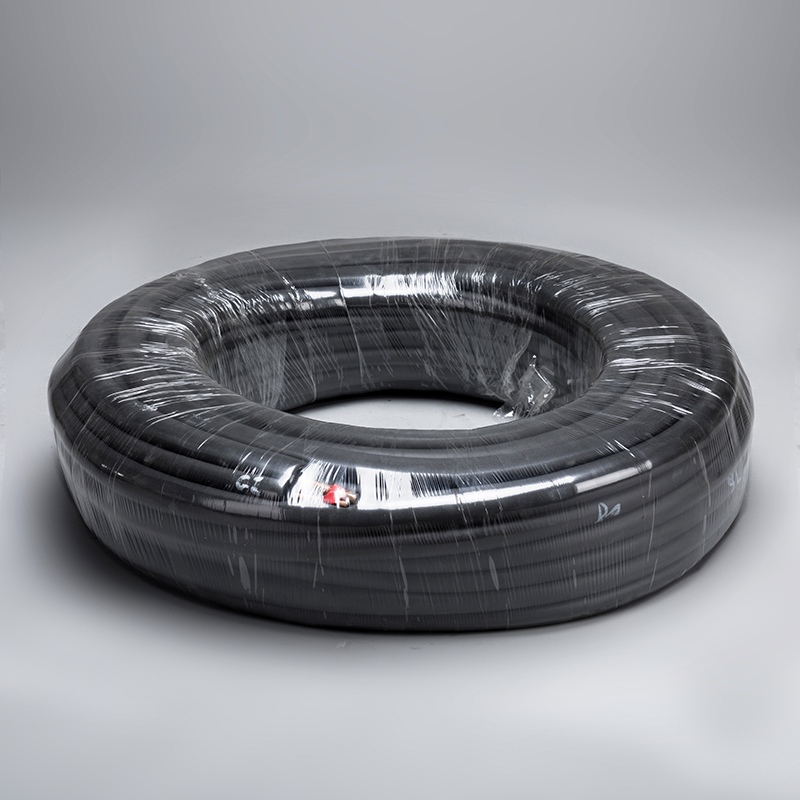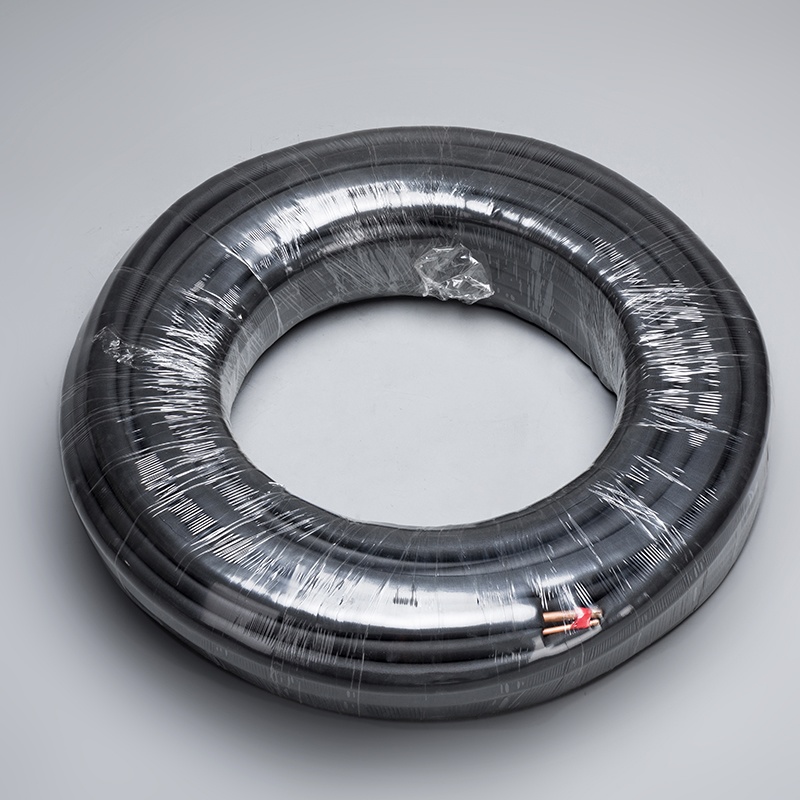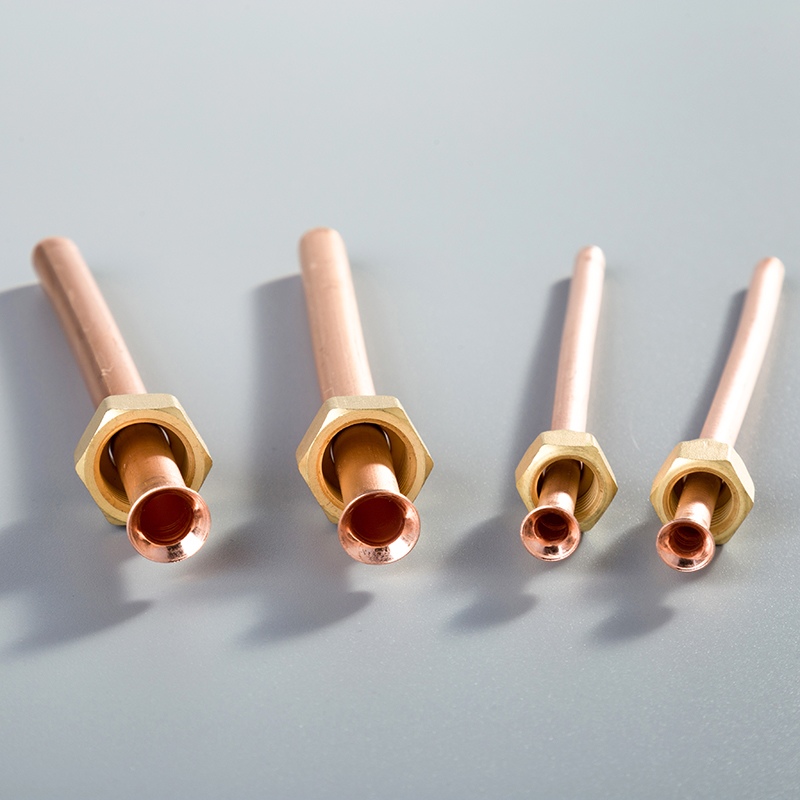What Are the Benefits of Copper Pipes in Air Conditioning?

What are the Benefits of Using Copper Pipes in Air Conditioning?
In the realm of air conditioning systems, selecting the appropriate materials is paramount for optimal performance. Copper pipes stand out as a preferred choice due to their exceptional attributes. These pipes are renowned for their superior heat transfer properties, durability, and resistance to corrosion. They play a crucial role in ensuring efficient cooling or heating across diverse residential, commercial, and industrial applications.
Durability and Longevity
Resistance to Corrosion
Copper's resistance to corrosion is exceptional, setting it apart from other materials used in air conditioning systems. When copper oxidizes, it forms a protective green layer called patina that prevents further corrosion. This natural process ensures that copper pipes maintain their integrity over time.
How copper resists corrosion
Copper is malleable, ductile, and an excellent conductor of heat and electricity.
It forms a green outer layer called patina when oxidized, protecting it from further corrosion.
Comparison with other materials
Copper is more resistant to corrosion than aluminum and brass.
It develops a natural patina that protects the metal and adds aesthetic character.
Longevity of Copper Pipes
The lifespan of copper pipes in air conditioning systems is remarkable, thanks to their inherent durability. These pipes do not rust or degrade over time, ensuring long-term reliability and performance even in challenging environments.
Lifespan of copper pipes in air conditioning
Copper is highly resistant to corrosion, suitable for air conditioning systems exposed to moisture.
It does not rust or degrade over time, ensuring long-term reliability.
Maintenance requirements
Regular maintenance ensures the longevity of copper pipes in air conditioning systems.
Simple cleaning procedures can help preserve the efficiency and functionality of the pipes.
Thermal Conductivity

Efficient Heat Transfer
Copper's high thermal conductivity plays a pivotal role in air conditioning systems by ensuring rapid heat exchange. This efficiency leads to quicker cooling or heating of spaces, enhancing the overall performance of the system.
Role of thermal conductivity in air conditioning
Copper facilitates the transfer of heat at a faster rate compared to other materials.
It allows for efficient temperature regulation within air conditioning units.
Benefits of copper's high thermal conductivity
Copper enables swift heat exchange, improving the responsiveness of air conditioning systems.
It contributes to maintaining consistent temperatures throughout spaces, enhancing comfort levels for occupants.
Energy Efficiency
The use of copper pipes in air conditioning systems significantly impacts energy consumption and operational costs. Copper's ability to efficiently transfer heat reduces the workload on cooling or heating mechanisms, leading to long-term energy savings.
Impact on energy consumption
Copper minimizes energy usage by facilitating quick and effective temperature adjustments.
It optimizes the overall performance of air conditioning units, resulting in lower energy consumption.
Cost savings over time
By utilizing copper pipes, property owners can benefit from reduced energy bills over time.
The initial investment in copper pipes translates into long-term cost savings due to enhanced energy efficiency.
Malleability and Flexibility

Ease of Installation
Copper pipes exhibit remarkable malleability, making them easy to work with during installation in air conditioning systems. The flexibility of copper allows for seamless adaptation to various configurations without the need for complex fittings or connectors, ensuring a straightforward installation process.
How malleability aids installation
Copper's flexibility reduces the requirement for intricate fittings, simplifying the installation procedure.
It can easily bend and adjust to different angles, facilitating a hassle-free setup.
Reducing labor costs
By eliminating the necessity for complex connectors, copper pipes contribute to cost savings on labor expenses.
The ease of working with copper enhances efficiency during installation, reducing overall labor time.
Adaptability to Complex Designs
The adaptability of copper pipes makes them suitable for a wide range of air conditioning system designs, from simple setups to intricate configurations. Their flexibility in design and layout allows for seamless integration into diverse structures, ensuring optimal performance across various applications.
Flexibility in design and layout
Copper pipes can be easily manipulated to fit specific design requirements without compromising performance.
They offer versatility in layout options, accommodating unique spatial constraints effectively.
Suitability for various air conditioning systems
The flexibility of copper pipes enables their use in different types of air conditioning systems, including residential and commercial setups.
Their adaptability ensures compatibility with a variety of system sizes and layouts, offering a versatile solution for diverse cooling needs.
Safety and Health Benefits
Antimicrobial Properties
Copper's natural properties extend beyond its durability and thermal conductivity. Copper surfaces possess inherent antimicrobial effects, inhibiting the growth of bacteria, fungi, and viruses. This unique characteristic makes copper pipes an ideal choice for maintaining hygienic environments within air conditioning systems.
Copper's natural antimicrobial effects
Copper acts as a natural fungicide, preventing the proliferation of mold and mildew in air conditioning setups.
Its antimicrobial properties contribute to cleaner indoor air quality by reducing harmful microorganisms.
Benefits for indoor air quality
Utilizing copper pipes in HVAC systems enhances indoor air quality by minimizing the presence of pathogens.
The use of copper promotes a healthier environment by limiting the spread of harmful microbes through the air.
Safety in Use
In addition to its antimicrobial benefits, copper offers safety advantages that further elevate its appeal for air conditioning applications. Fire resistance is a notable feature of copper pipes, ensuring enhanced safety measures within buildings where these systems are installed. Moreover, copper's non-toxic nature adds another layer of security to air conditioning setups.
Fire resistance
Copper's fire-resistant properties make it a reliable choice for air conditioning systems, reducing potential fire hazards.
Its high melting point ensures structural integrity even under extreme temperatures, enhancing overall safety.
Non-toxic nature of copper
The non-toxicity of copper pipes eliminates health risks associated with harmful substances leaching into the environment.
Choosing copper contributes to safer indoor environments by avoiding the release of toxic compounds during operation.
Recap of the Benefits of Using Copper Pipes in Air Conditioning:
Durability and Longevity: HVAC professionals emphasize that copper pipes are highly durable, withstanding demanding conditions like high pressures and temperature variations. Their long lifespan and corrosion resistance ensure reliable performance over time.
Efficient Heat Transfer: Copper's exceptional heat transfer properties play a crucial role in maintaining efficient cooling or heating within air conditioning systems, contributing to overall energy efficiency.
Malleability and Flexibility: The adaptability of copper pipes allows for easy installation in various system designs, reducing labor costs and ensuring seamless integration into different configurations.
Safety and Health Benefits: Beyond durability, copper's antimicrobial effects promote cleaner indoor air quality, while its fire-resistant nature enhances safety measures within buildings.
Final Thoughts on Why Copper is a Superior Choice:
Copper pipes have been the unsung hero of HVAC systems, offering superior benefits such as efficient thermal conductivity, longevity, ease of installation, and safety advantages. Their widespread use across residential, commercial, and industrial applications underscores their unmatched performance in air conditioning setups.
Encouragement to Consider Copper Pipes for Future Air Conditioning Projects:
Considering the numerous advantages highlighted by HVAC professionals, incorporating copper pipes in future air conditioning projects can significantly enhance system efficiency, durability, and overall performance. Make the smart choice for your HVAC needs by opting for the proven benefits of using copper pipes.
See Also
Benefits of Opting for Copper Tubing in Air Conditioning
Key Advantages of Copper Piping in Air Conditioning
Exploring the Top 5 Advantages of Copper Tubing in AC
Revealing the Top 5 Advantages of Copper Piping in AC
The Importance of Copper Tubing for Effective Air Conditioning


